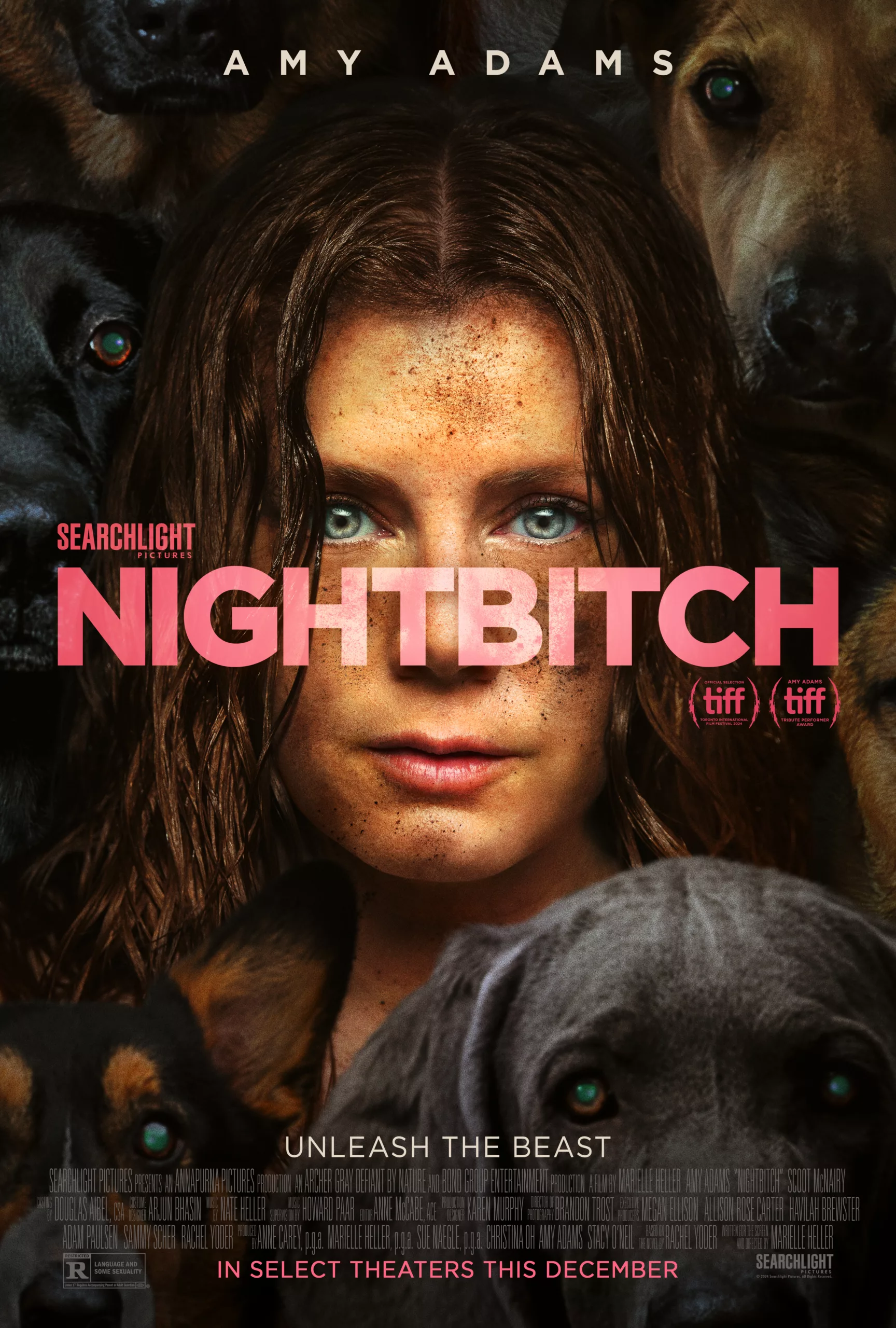Being a mom is hard, a universal truism that “Nightbitch” explores in ways that are occasionally inspired but mostly blunt and banal.
Marielle Heller’s film, based on the buzzy debut novel by Rachel Yoder, threatens to get weird and dangerous, only to retreat into cozy validations by the end. As writer and director, Heller too often remains on the surface of complicated feelings, following the compelling honesty of her previous films like “The Diary of a Teenage Girl” and “Can You Ever Forgive Me?”
Amy Adams seems game for the physical and emotional challenges required of this darkly comic satire, though, starring as a mother we know only as Mother. Mother has put her career as an artist on hold to raise her 2-year-old son, named Son. (The post-apocalyptic musical “The End,” which also comes out this week, similarly declines to name its characters. It’s a device that’s more annoying than clever.) He’s a super-cute little dude, though, played by towheaded twins Arleigh Patrick Snowden and Emmett James Snowden, both of whom seem unusually poised for their age.
But we get an early indication of her true mental state in the film’s opening scene, when she runs into a friend at the grocery store who asks whether she’s loving being a stay-at-home mom. Mother goes on a raw, hyper-verbal tirade about how exhausted and miserable she is–“I’m deeply afraid that I’ll never be smart, or happy, or thin ever again,” she admits–only for the film to reveal that was a fantasy sequence. Her real answer, “I love being a mom,” floats benignly in the air. We’ll see this bait-and-switch approach so often throughout “Nightbitch” that it becomes predictable.
Working with editor Anne McCabe, Heller establishes a rhythm to the repetition of Mother and Son’s daily routine: cooking, eating, playing, cleaning and—eventually—guzzling a giant glass of red wine in the afternoon. We can all relate to the blur of the monotony, the detachment from time. But Mother’s smothering narration in scenes like this frequently spells out what we can see with our own eyes.
Sometimes, though, the duo will visit the library for the mind-numbing musical circle of Book Babies. (Heller’s brother, Nate, is the amusingly perky, ponytailed song leader; he also composed the film’s score.) This is something else “Nightbitch” really gets right about early motherhood: the way in which you befriend women you have nothing in common with, simply because your kids are the same age and you’re all taking part in the same inane activities to fill your days. Mary Holland, Zoë Chao and Archana Rajan play these fellow moms, but there’s not much to any of their characters besides their hunger for grown-up conversation. Similarly, you’ll wish the legendary Jessica Harper had more to do in her few scenes as a sympathetic librarian.
Eventually, something snaps inside Mother. Maybe it’s fact that her husband (Scoot McNairy) is usually traveling for work, leaving her to parent alone. Maybe it’s the endless, sleepless nights, which she acknowledges are her own fault because she lets her son stay in bed with her. But she begins to notice her body changing, at first subtly, then drastically. A sprig of soft, blonde fur sprouts at her tailbone. Her teeth sharpen, her sense of smell heightens. And then one night, she escapes the house and transforms into a dog, running through the streets of her Southern California suburb, rampaging with a pack of neighborhood canines.
These are the moments in “Nightbitch” that had real potential: Whether it’s a metaphor or magical realism, the way this instinct manifests itself is a thrilling concept. Instead, we get mere hints of the destruction and carnage. Mother speaks of her inner rage, and how becoming the Nightbitch—as McNairy’s Father jokingly calls her when he doesn’t realize what’s really happening—liberates her. But this is yet another example of the movie telling rather than showing.
“I have one thought: I am an animal,” Mother says, as she … turns into an animal. A more effective way of conveying this urge comes during a later trip to the grocery store, when she and Son noisily dig into their hot-bar meatloaf face-first as if they were scarfing it down from a bowl, to the horror of their fellow shoppers.
Having a child understandably causes Mother to reconsider on her own mother, whom we see in flashbacks portrayed by a well-cast Kerry O’Malley. These reminiscences of youth suggest a supernatural element, a primal connection, which provides yet another opportunity for heavy-handed voiceover. Within her own family, though, her husband is such a useless dolt that it’s a wonder what she saw in him in the first place. A couple of their arguments bristle with tension, but the fact that we know so little about what their relationship was like before they became parents lessens the stakes.
Turning into a dog is actually the least interesting part of “Nightbitch.” The recognizability of Mother’s day-in, day-out doldrums, and how she fights to forge a new identity within them, is the real happily ever after within this twisted fairy tale.




















